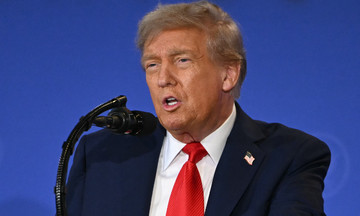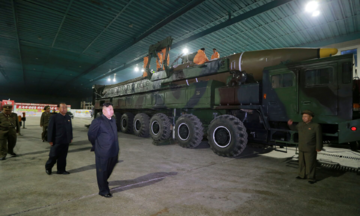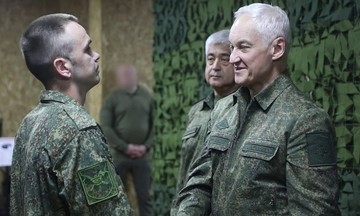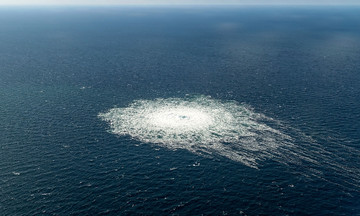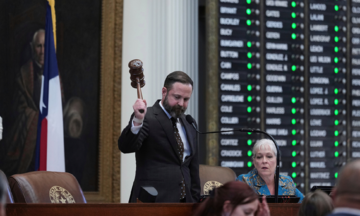In a Truth Social post on 31/7, former President Donald Trump called Russian Security Council Deputy Chairman Dmitry Medvedev a "failed former president" and described India and Russia as "collapsing economies".
"Tell Medvedev to watch his words. He is venturing into extremely dangerous territory!", Trump concluded.
The warning was in response to Medvedev's dismissal of Trump's latest ultimatum, issued on 29/7, giving Russia 10 days to resolve the conflict with Ukraine or face sanctions and tariffs.
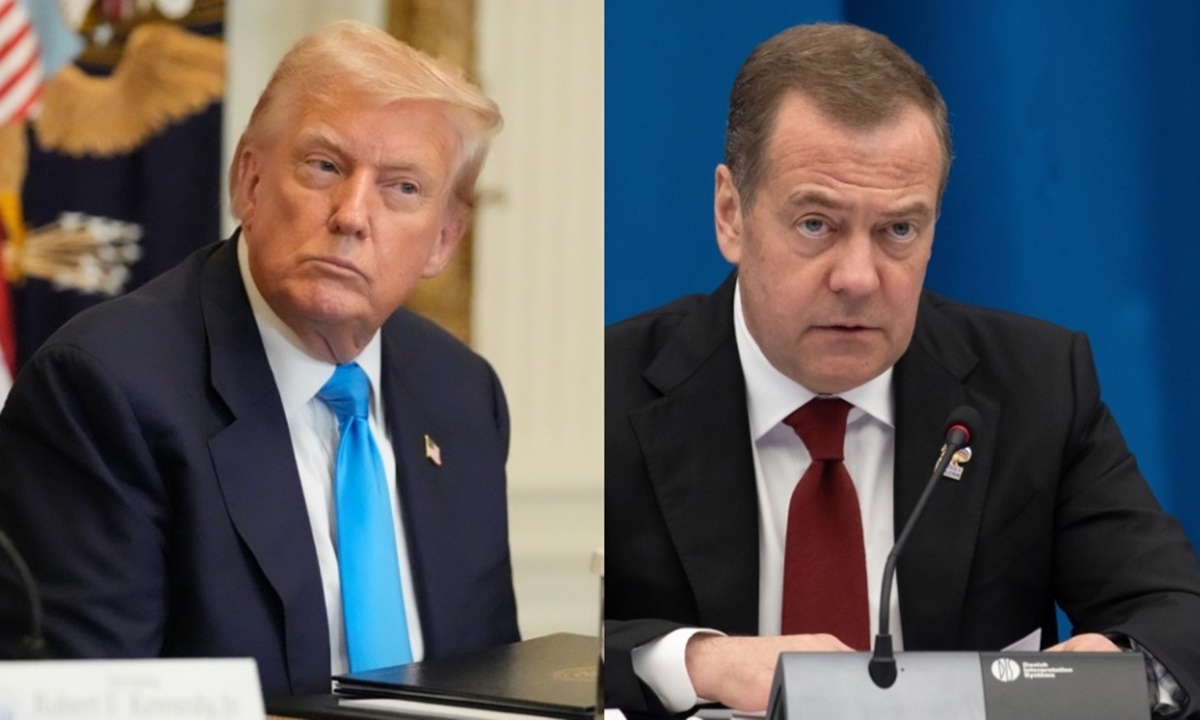 |
Former US President Donald Trump (left) and Russian Security Council Deputy Chairman Dmitry Medvedev. Photo: AP |
Former US President Donald Trump (left) and Russian Security Council Deputy Chairman Dmitry Medvedev. Photo: AP
Less than three hours later, Medvedev, who served as Russia's president from 2008 to 2012, responded with a Telegram post. He suggested Trump should imagine the post-apocalyptic television series "The Walking Dead" and referenced the "Dead Hand" automated nuclear launch system from the Soviet era.
"Dead Hand" is the Western name for the Soviet Union's Perimeter nuclear deterrent system from the Cold War. It was a semi-automatic command system designed to ensure that Soviet nuclear weapons could be launched automatically in retaliation if the entire leadership were killed in a preemptive strike.
"If just a few words from a former Russian president can make the former US president react so nervously, then Moscow is on the right track and will continue on this path", Medvedev emphasized.
This is the second time this summer that Trump and Medvedev have clashed online. The exchanges are notable for their tense and harsh rhetoric between representatives of the world's two leading nuclear powers.
Observers say this latest tit-for-tat exchange highlights the unpredictable nature of the US-Russia geopolitical relationship regarding the war in Ukraine. In these public disputes, Medvedev frequently mentions the nuclear threat, while Trump consistently attacks his opponent personally.
Michael Kimmage, a professor at Catholic University in Washington and an expert on US-Russia relations, noted that this starkly contrasts with traditional diplomacy, where messages are typically conveyed cautiously and carefully, as any mistake could have significant consequences.
Since the beginning of the war in Ukraine, Medvedev has frequently issued nuclear warnings. He has warned that Russia might be forced to use nuclear weapons in Ukraine and even threatened NATO that "the defeat of a nuclear power in a conventional war could trigger a nuclear war".
Russian President Vladimir Putin also mentioned nuclear weapons several times during this period, as the Kremlin sought to deter the Biden administration from supporting Kyiv. But as Trump became increasingly frustrated with Russia's unwillingness to compromise on Ukraine, Putin's response changed.
Putin has recently avoided mentioning Trump's ultimatums, and the Kremlin spokesperson simply stated they are monitoring the situation. Medvedev, however, has taken a more consistent hard line.
"Every new ultimatum is a threat and a step towards conflict", Medvedev posted on X earlier this week after Trump warned of possible new sanctions against Russia.
Recalling last year's US presidential election campaign, in which Trump criticized President Biden for risking World War III by supporting Ukraine, Medvedev warned the US administration "not to follow the same path".
Experts believe Medvedev's mention of the Biden administration in his warning is likely a gamble by the Kremlin. They may believe that Trump's supporters will, therefore, pressure him to de-escalate tensions with Russia.
Grigorii Golosov, a professor of political science at the European University in St. Petersburg, Russia, suggests that despite the harsh tone, the online sparring between Trump and Medvedev offers certain political benefits for both sides.
Medvedev is very active on social media, which is rare for most high-ranking Russian officials. He created a Twitter account, now X, in 2010 during a visit to Silicon Valley.
After Russia launched its campaign in Ukraine in 2022, Medvedev became the face of Russian hawkishness, making statements more blunt and direct than Putin or Kremlin spokesperson Dmitri Peskov.
Russian political analysts believe Medvedev's antagonistic online demeanor is almost certainly sanctioned by the Kremlin, as it amplifies the threat posed by Russia's nuclear arsenal while portraying Putin as a more moderate leader.
Meanwhile, attacking Medvedev may also be beneficial for Trump, allowing him to demonstrate a tough stance against Russia without directly confronting Putin, according to Golosov.
Trump can use Medvedev's frequent mention of nuclear issues to convey the message that he does not tolerate provocative language from Russia, especially threats related to nuclear weapons.
On the other hand, analysts suggest that Trump's public confrontation with a high-ranking Russian official can also be seen as a way to reinforce his image as a strong, uncompromising leader. This could help alleviate concerns among some US voters about his previously friendly stance towards Russia.
Trump has openly expressed his frustration and anger over his Russian counterpart's lack of willingness to compromise on Ukraine. The online sparring with Medvedev, a close ally of Putin, could also be a way for Trump to clarify his tough stance, thereby prompting the Kremlin to be more serious in its efforts to find a peaceful solution to the conflict.
"Trump wants to criticize someone in Russia but still hopes to reach an agreement with Putin on Ukraine", Golosov said. "Therefore, Medvedev becomes the perfect target".
Vu Hoang (AFP, Reuters, AP)



